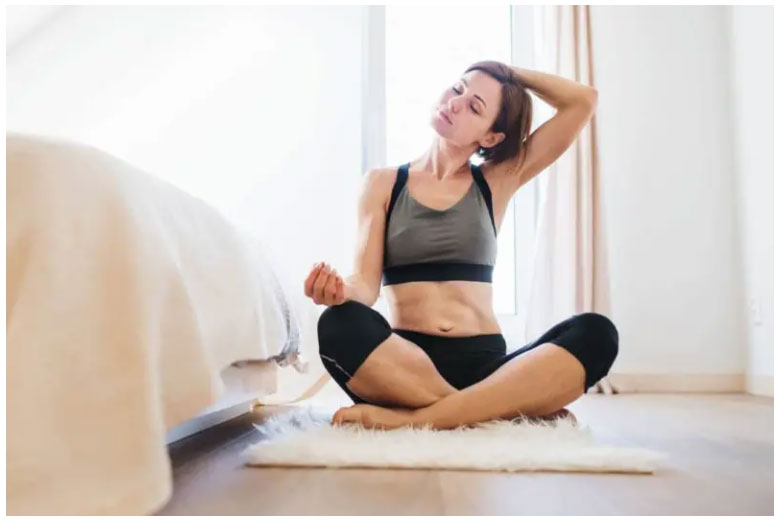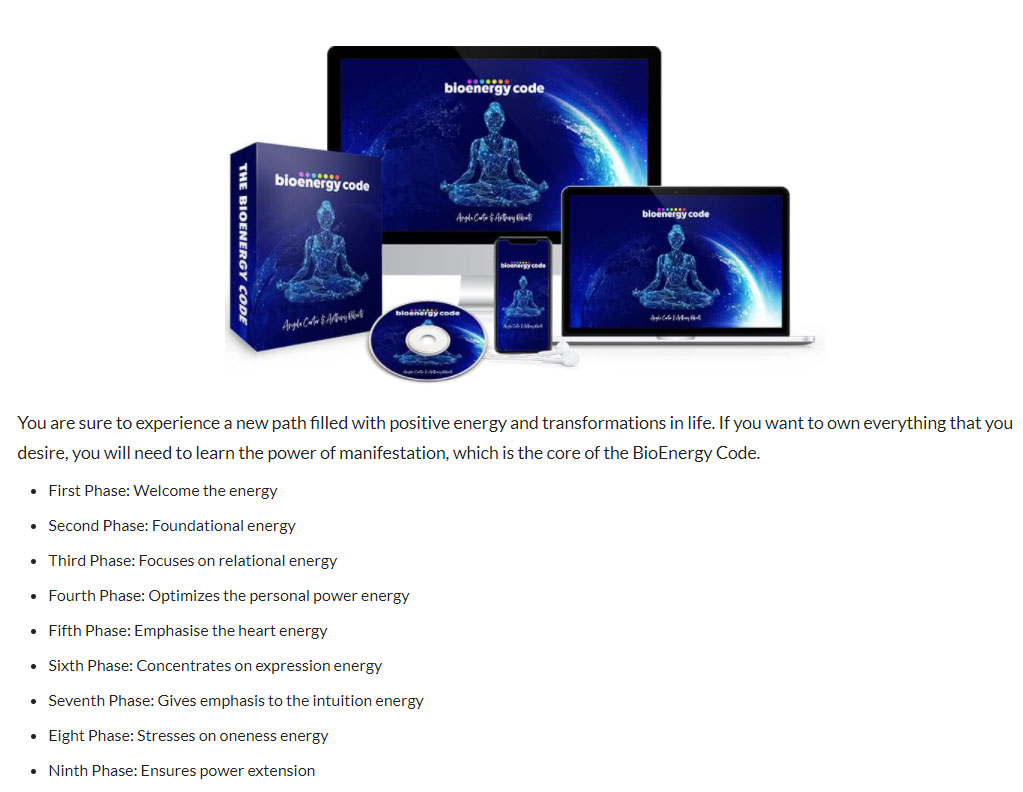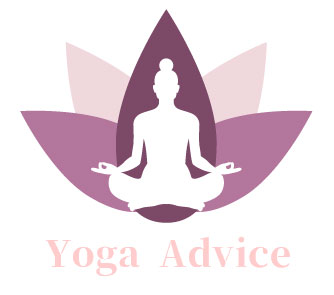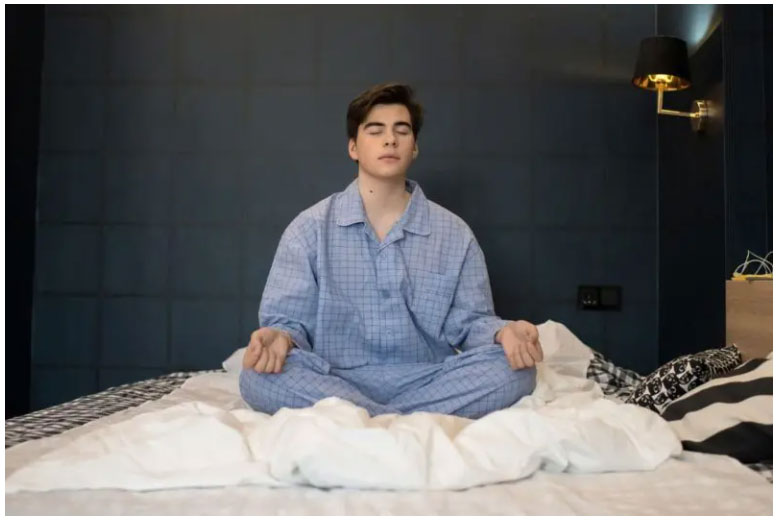Meditation for Better Sleep
It is not insignificant to find people who try their best to find the ideal recipe to overcome insomnia. Sleeping pills can quickly promote sleep, but in the long run, these drugs may no longer have any effect. In addition, medications or other drugs do not allow you to achieve deep, restful sleep.
Drinking a little herbal tea before going to bed or counting sheep to fall asleep? These methods are also sometimes ineffective. What if you tried meditation to help you sleep better? A tense body is enough to delay sleep. To help you relax and fall asleep, a few relaxation exercises through meditation can do you a lot of good and improve your sleep.
Lack of sleep and insomnia: source of stress and depression
We all know the ravages of insomnia on the body, on mental health, but also on the quality of life. When insomnia or lack of sleep accumulates, the body becomes exhausted and can no longer keep up with the biological rhythm. When you wake up, you lack energy with the impression that you have not slept all night. In the long term, this can lead to a state of permanent stress that turns into anxiety and in extreme cases can lead to chronic depression. This completely alters the quality of life. Thus sleep meditation can be very effective.
Freeing the mind from all worries to sleep well
Simply rethinking the day's worries while trying to fall asleep can delay the falling asleep process. That's because when you manage to slip into bed, you simply start to dwell on the day and focus on the annoyances. This state of mind in which you find yourself will have a direct impact on your body and brain. The brain keeps digging and the body doesn't relax at all. But when it comes time to fall asleep, the body needs to be helped to relax in order to promote falling asleep.

Those factors that don't help you sleep
Certain factors, encountered daily, favour insomnia and lead to poor quality sleep. But more than that, it is useless to look for techniques that promote deep sleep if you deal with the factors that cause insomnia on a daily basis. Therefore, you must first make sure that your environment and habits are conducive to providing you with quality sleep. Factors that should be checked include :
The quality and comfort of the bed
The quality of the mattress and pillows must allow the body to relax. Choose a mattress that is neither too hard nor too soft.
Nutrition
It plays a very important role in allowing your body to rest. A heavy stomach often prevents you from sleeping. It is advised not to eat at least 2 hours before sleep. Eating light is highly recommended. In addition, avoid anything exciting: coffee, tea, sugar, alcohol, drugs or any drink containing caffeine and theine.
Screens
Screens or other mind-stimulating activities are strongly discouraged before bedtime. Television and video games only stimulate the brain. The same goes for telephones, whose blue light will keep you awake.
Electromagnetic devices
As they emit electromagnetic waves, they should not be placed near the bed or in the bedroom. This is the case with cell phones, which tend to invade our daily lives a little more, which has a great influence on our health.
Stress and worries
When you get on the bed, it means you've relieved all your accumulated stress and worries of the day outside the bedroom. The bed should be a resting place where all anxieties and worries are not allowed. If this is not the case, there is no point in engaging in meditation practices.

Meditation to unburden the mind and sleep better
If all the factors to promote sleep are well combined (diet, sleeping environment, evening activity, etc.), you still have a technique to soothe the body and mind at the same time. This is meditation. This technique facilitates the taking of sleep and allows access to a deep and restorative sleep.
Meditation to calm thoughts
During a deep sleep, the mind sorts through the different information it has received during the day. It retains only the good information and discards sources of stress or insomnia. More concretely, the mind will cleanse the data received during the day to discharge our brain. In this way, you can wake up in great shape and with the right mood to attack the day.
Meditation for better sleep is a technique that consists of removing all superfluous thoughts to focus only on a so-called neutral thought, an image or an object. The most important thing is that meditation allows you to let go and let your thoughts flow without focusing too much on them. It is this process that delays sleep. When you think too much, you can't sleep. So you need to meditate to speed up the process of falling asleep.
Other benefits of meditation
In addition, meditation also has well-known health effects. It significantly reduces stress and anxiety. It calms, among other things, hypertensions and depression. In addition, it also helps to reduce chronic pain in the body. Women suffering from fibromyalgia or elderly people with pain can experience the benefits of meditation.
Meditate to sleep better
Here are some simple meditation techniques to overcome insomnia, to be done daily and regularly to facilitate falling asleep:
Meditation is a perfect weapon to fight insomnia and thus sleep better. Indeed, it will allow you to soothe anxieties and calm your mind. However, it is recommended to do meditation to improve sleep during the day and not at night. It is also necessary to make sure to do it regularly. You won't get concrete results if the practice is irregular. The more you practice, the more you will be able to overcome the stress before sleeping.
Night meditation (just before sleep) is not really recommended, but it can be done in cases where you are absolutely unable to sleep. This may prevent you from getting up to go to the bathroom or open the fridge. However, care should be taken to ensure that night meditation does not become a habit.

Here are some simple meditation techniques to overcome insomnia, to be done daily and regularly to facilitate falling asleep:
Prepare for deep sleep during the day
During the day's meditation, you can prepare your sleep by visualizing it. By repeating certain phrases, you can activate the mechanism in your brain that releases overloaded thoughts. For example, "I take less time to fall into a deep sleep from that night on. Or, "I won't have trouble falling asleep from now on, but also, "I won't wake up in deep sleep. These visualizations will reach your subconscious mind and will be recorded by your brain. To further activate this recording process, you can also visualize yourself falling into a deep sleep.
Visualization of the sleep door
This meditation technique to promote sleep can be used when you are in bed and have difficulty falling asleep. It is a bit like the sheep-counting method, but more effective. It involves visualizing the sleep door to guide you into a deep sleep. This technique consists of a few distinct steps:
• Start by closing your eyes.
• Breathe in slowly, inhale calmly and exhale all tensions out of the body. Repeat three times a minute.
• Relax your body, releasing all pressure from head to toe.
• Begin the visualization step by imagining yourself walking down 10 steps to a peaceful garden or a place you imagine to recharge your batteries. Tell yourself that with each step, you will become even calmer.
• Then, enter the peaceful garden to recharge your batteries. Feel only the calm and tranquility brought by this environment. Explore the nature, the colors, the sounds that surround you in this garden.
• When you are in front of the sleeping door, nestled at the bottom of the garden, open it. At that moment, you will already be able to fall into a deep and peaceful sleep.
Meditating against insomnia
Insomnia is considered a major health problem. It greatly affects the quality of life, especially when it becomes chronic. Meditation is considered a weapon, more powerful than a sedative, for sleep. Meditating to sleep has long-lasting and undesirable effects. If you have nightmares, we recommend this article.
According to research on the effects of meditation on insomnia, people who practice this technique regularly feel more motivated to adopt a healthy lifestyle. In addition, meditation allows you to fall back asleep more quickly if you wake up in the middle of the night. Here are some meditation exercises for sleep that help fight insomnia:
The body scan
The body scan is an effective exercise to fight insomnia and help you get back to sleep faster. It also helps you feel better physically and emotionally. As a result, it allows you to concentrate and avoid thoughts that are too harmful to sleep. This exercise is done in several steps:
• Lying on your back or sitting down, find the position that is most comfortable. Don't hesitate to readjust your position to find the one that will make you most comfortable. It is important to take your body's landmarks in relation to its support.
• Start by harmonizing your breathing by lifting your chest, this way your posture will stabilize during exhalation.
• Now pay attention to your whole body, to all parts of your body starting from your head to your feet or vice versa.
• Gradually bring your fingers up to your shoulders. Do the same with your toes. Follow them to the hip on each side.
• At each place, take the time to rest for 10 seconds to focus all your attention on the body. it is important to feel the body sensations, the position of your body.
The purpose of this exercise is to make you feel good, but at the same time to exercise your wandering mind so that it can quickly refocus. By practicing the bodyscan regularly, you can help your mind to focus, not wander too much in superfluous thoughts.

Manage thoughts better sleep
In the middle of the night, when your thoughts are wandering around, it's almost impossible to get them back to sleep. This meditation exercise will allow you to manage your thoughts, or rather to think differently.
For example, when you start thinking about worries, concerns, or just about your day, rate your thoughts on a scale of 0 to 10 to find out its value: Rating 0 if you suggest your thought is not credible and rating 10 if you think it is real.
Now leave the thoughts you think are useless and focus on the real ones. Keep only the positive thoughts that allow you to relax.
Although sleep meditation techniques are very effective, it is important that they be accompanied by a healthy lifestyle and an environment conducive to sleep. For example, in your bedroom, choose a soothing decoration. Remove all clutter so as not to over-stimulate the brain.
Also, if you feel too enclosed in your room, don't hesitate to open the window to bring in a breeze of fresh air. This will help evacuate the negative waves trailing through the room. Finally, remember that a meditation technique can only combat insomnia when it is practiced on a regular basis.
Finally spend pleasant and peaceful nights
You now have all the cards in hand to overcome your insomnia! The sleep meditation techniques outlined above have been proven to work for many people over the years who also suffered from sleep disorders. Nothing and no one will be able to prevent your body and mind from resting in total calm and Zen-attitude!


